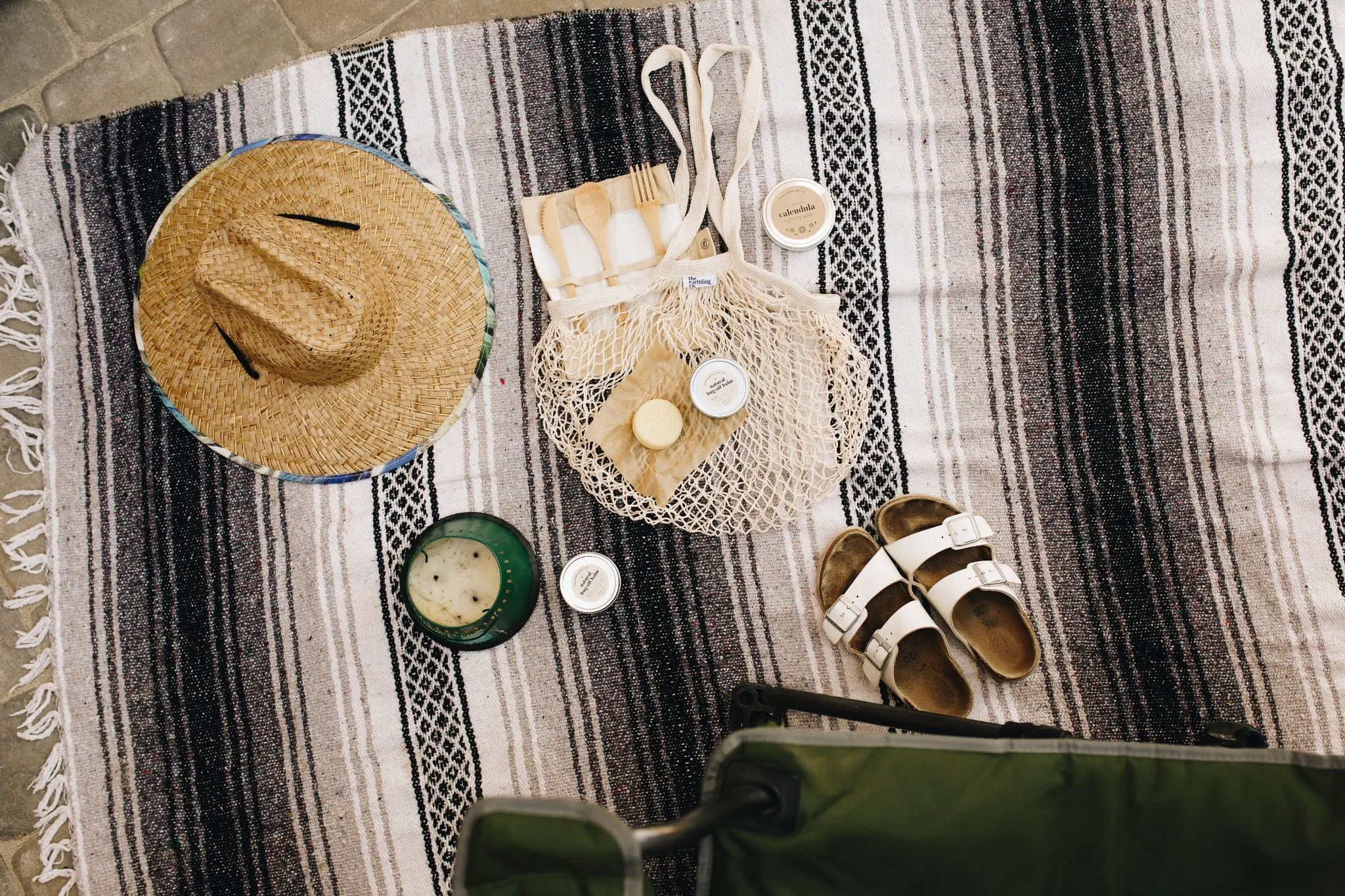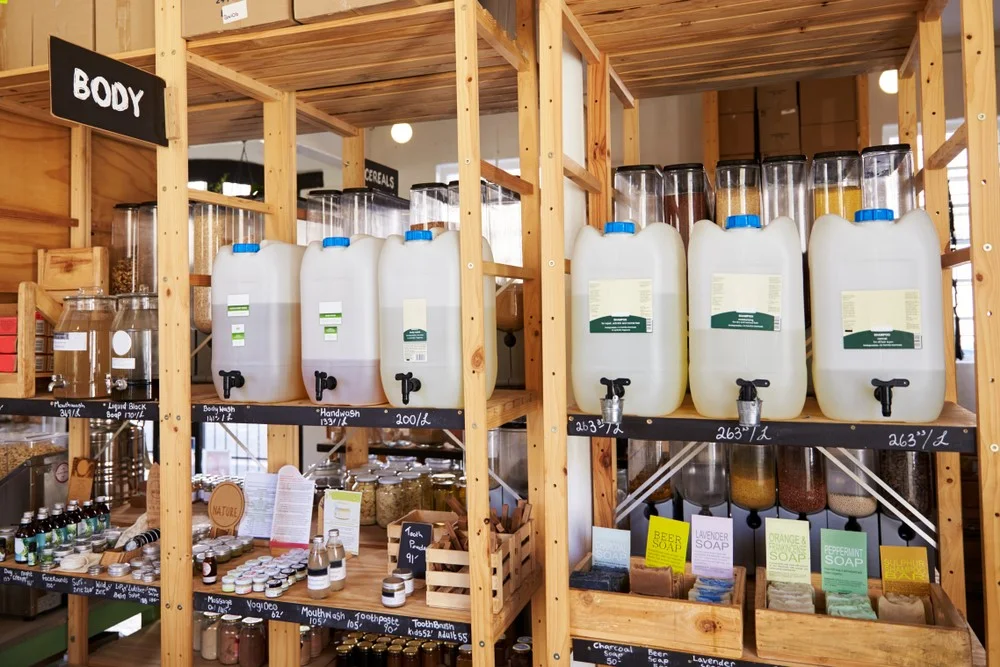Unless you’ve been living under a rock these past few years, you might have noticed that a lot of beauty brands are moving towards sustainable products. And, frankly, it’s about time. The personal care industry produces a whopping 120 billion units of packaging every year, contributing to numerous environmental problems such as plastic pollution, deforestation and water scarcity.
Sustainability has become top of mind for many beauty lovers, and we’re happy to see it! But let’s face it — switching to a “green” beauty routine can be pretty overwhelming, especially if you’ve been using the same skin care and hair care products for years.
Making changes to your beauty routine is much easier when you know you’re going to love the results. That’s why we’ve put together this list of sustainable beauty swaps that promise to change your routine for the better.
- Swap plastic bottles for shampoo bars
We get it — finding the right shampoo for your hair can be tricky. Once you’ve found the right shampoo for your hair type, you might be reluctant to switch things up. But for the sake of both your hair and the environment, give shampoo bars a try. These humble little bars are mega-concentrated with nourishing ingredients that help give dull, dehydrated hair a much-needed boost. Best of all, they often come in 100 percent plastic-free packaging. A single shampoo bar can replace about three shampoo bottles that would otherwise go to a landfill.
Not sure how to use a shampoo bar? Don’t worry, it’s super simple! You can rub the bar directly on your hair or rub it in your hands first to create a soapy lather. For best results, follow up with a plastic-free conditioner bar.
- Swap single-use packaging for refillables
From drugstores to indie makeup brands, everyone in the beauty industry seems to be getting into the refillable game lately. What’s not to love? Instead of tossing lipsticks, makeup palettes, mascara and other beauty products, you can simply pop in a refill and give it a new lease on life. Not only is this better for the planet, it’s also kinder to your wallet since you’re buying a superior product that often lasts much longer compared to their single-use counterparts.
If you want to make an easy environmental impact, figure out which beauty products you run out of the fastest and look for refillable alternatives for those products. Refillable deodorant in particular is a great swap because most deodorants are made from a blend of plastics that can’t be recycled.
- Swap single-use sheet masks for reusable silicone sheet masks
If you have a sheet mask addiction, you’re definitely not alone. After all, who doesn’t love unwinding with a sheet mask and a cup of tea? But seriously, though, single-use sheet masks are terrible for the environment, thanks to their plastic waste and non-biodegradable ingredients. But don’t fret because there are plenty of sustainable alternatives that your skin (and your wallet) will love.
Case in point: reusable silicone sheet masks. Designed to be worn on top of your favorite serums and moisturizers, these eco-friendly masks can be washed and reused an infinite number of times, making it a whole lot easier to ditch your one-and-done habit. Plus, they contain no active ingredients, which gives you the freedom to choose whichever skin care ingredients you want.
- Swap plastic for sustainable packaging
The majority of beauty products come wrapped in plastic, which can take hundreds of years to decompose. On top of that, plastic is notoriously difficult to recycle. According to the experts, only nine percent of virgin plastic ever produced has been recycled.
The next time you’re running low on a product, challenge yourself to find a plastic-free alternative. For example, instead of buying lip balm in a plastic tube, choose a lip balm that comes in a cardboard tube or tin container. Not only are these materials easier to recycle and reuse, but they also look better in your bathroom compared to cheap plastic.
- Swap makeup wipes to reusable cotton rounds
Makeup wipes, face wipes, moist towelettes — whatever you want to call them, they’re incredibly harmful to the environment. Often made from a blend of plastic materials, these pre-moistened wipes can take up to 100 years to break down in a landfill. And in case that wasn't reason enough to ditch the face wipes, here’s one more: they’re actually awful for your skin. Makeup wipes push dirt and makeup around your face, making your skin more susceptible to breakouts.
Want to save money and help the environment? Swap plastic-based wipes for reusable cotton rounds. These sustainable pads can replace hundreds of single-use wipes, making them easier on your wallet and the planet.
- Swap toothpaste tubes for toothpaste tablets
Did you know that over one billion toothpaste tubes end up in landfills each year in the United States? Once there, it takes approximately 500 years for these toothpaste tubes to degrade.
Toothpaste tablets are a much better option for the planet since they often come in 100 percent plastic-free packaging. Plus, they’re a total game-changer for travel and camping. Simply pop one in your mouth, bite down and brush with a damp toothbrush. No more messy tubes!
- Swap moisturizer for face oil
If you’ve been using the same moisturizer for years, this might be a tough swap to make. But hear us out: Face oils are better for your skin and the environment. Like most beauty products, moisturizers often contain water as a filler ingredient. The problem with water in beauty products is that it reduces the overall effectiveness of the product, which leads you to consume more of the product. This, in turn, means more plastic packaging.
That’s where face oils come in. These trendy oils are super concentrated and contain no water, making them an ideal choice for both your skin and the planet. Plus, there are many different types of face oils — from rosehip seed oil to jojoba oil — that work great for all skin types. (Yes, even oily and acne-prone skin!)
Change isn’t easy, especially when it comes to your beauty routine. But with these simple swaps, you can achieve great skin and hair without harming the environment.






















COMMENTS